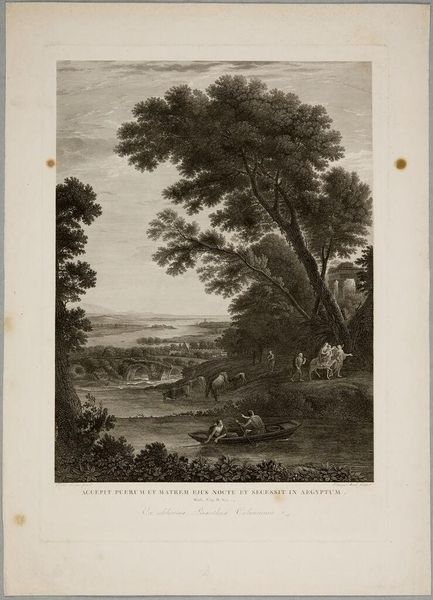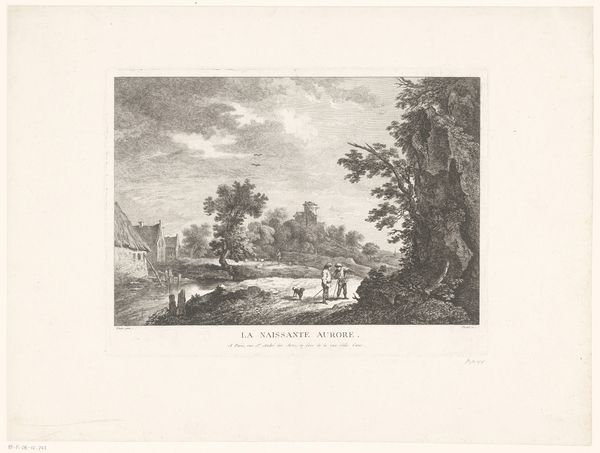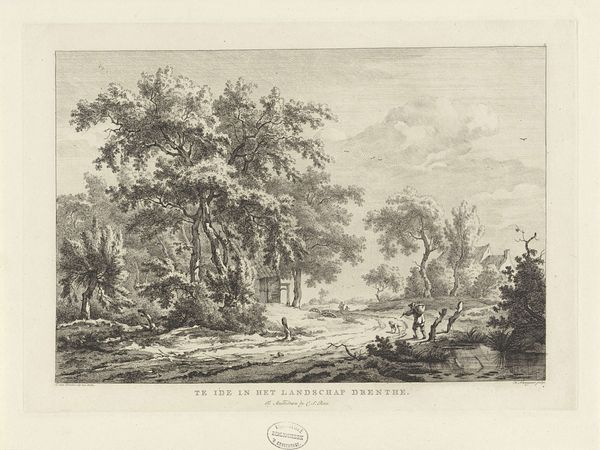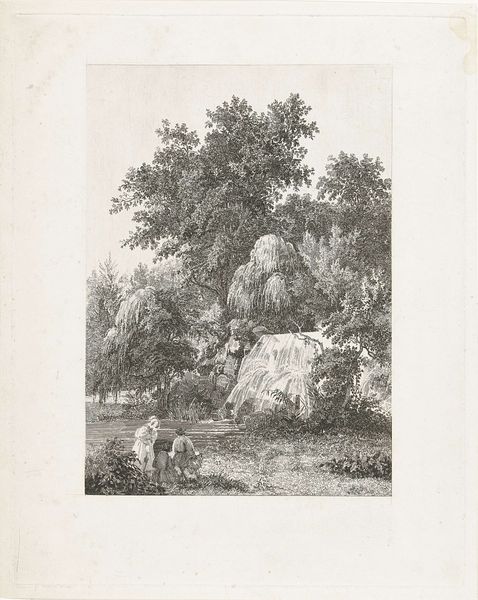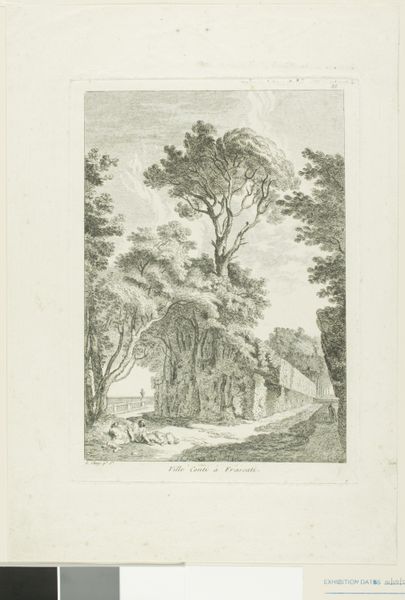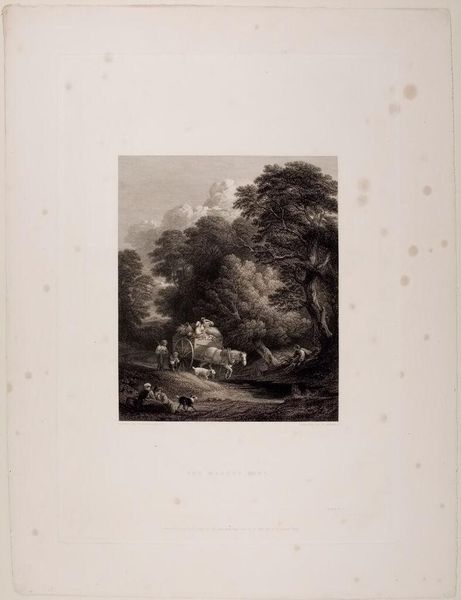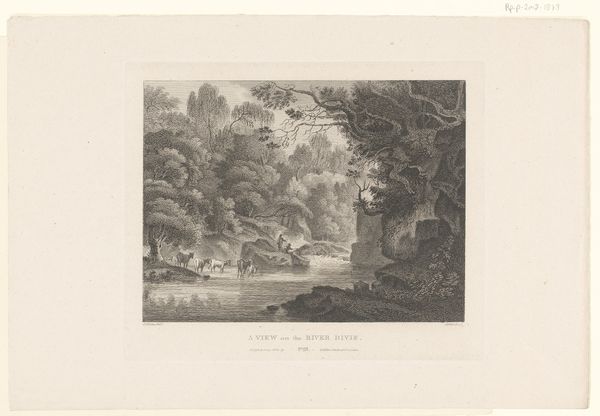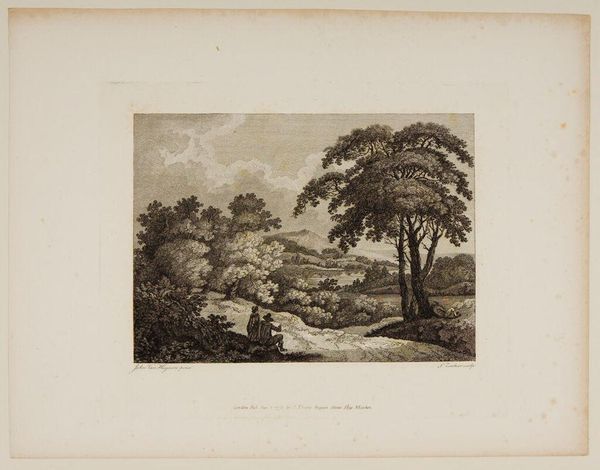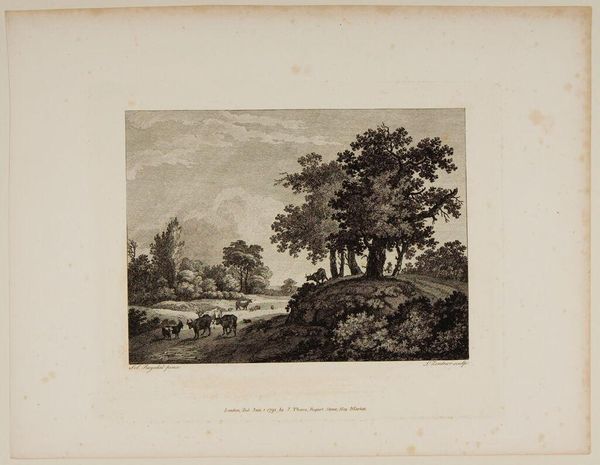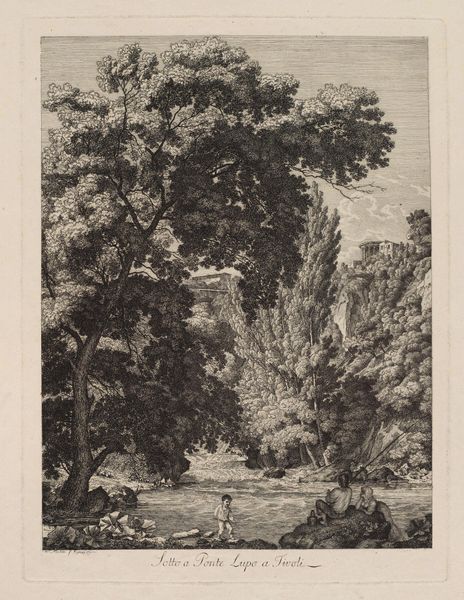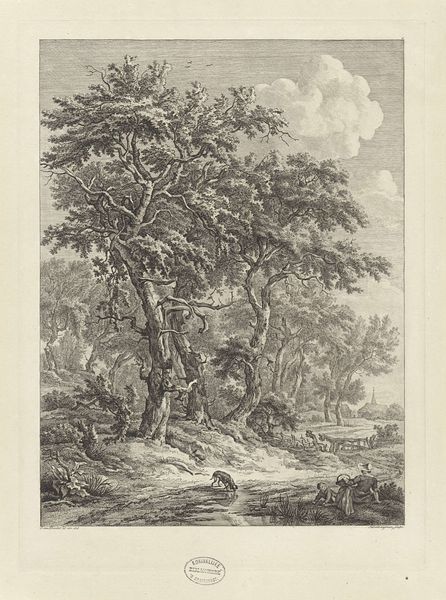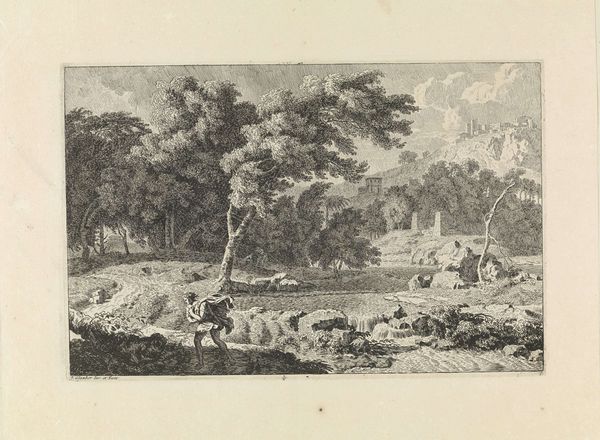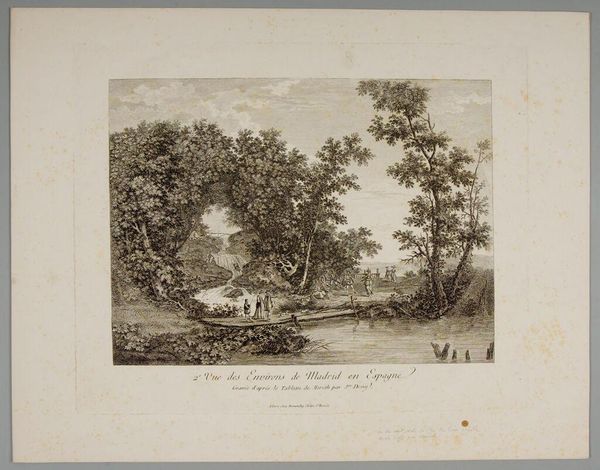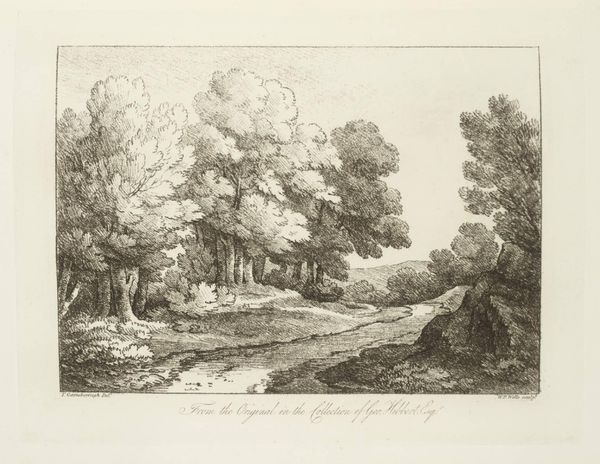
drawing, etching, pencil, engraving
#
pencil drawn
#
drawing
#
etching
#
pencil sketch
#
landscape
#
waterfall
#
pencil drawing
#
romanticism
#
pen-ink sketch
#
pencil
#
engraving
Dimensions: height 305 mm, width 243 mm
Copyright: Rijks Museum: Open Domain
Curator: Here we have Henricus Wilhelmus Couwenberg's "View of the Waterfall on the Sonsbeek Estate," created in 1838. It’s rendered in pencil and etching. Editor: Immediately, the meticulous rendering of foliage catches my eye, this obsession with surface texture! Look at how the pencil builds form. There’s a tangible feeling to the materiality despite it being a reproduction, an engraving. Curator: It's deeply rooted in Romanticism. The waterfall itself is less about the physical reality of a waterfall and more about evoking feelings of awe and sublimity, reflecting a specific relationship to nature as both beautiful and powerful. Note also the figures at the base, dwarfed by the landscape to emphasize this relationship. Editor: I'm thinking about the labor invested in capturing this view, not just Couwenberg’s work with pencil and etching, but the etcher’s craft too. Someone had to meticulously translate that landscape onto a metal plate for reproduction. That craft in service of an artistic vision. Curator: The choice to depict Sonsbeek is deliberate. Landed estates and country life became symbols of an idealized past, offering an escape from the rapid urbanization happening at that time. Waterfalls held great symbolic importance. The constant flow spoke of nature's regenerative power, offering viewers hope for renewal both personal and societal. The etching allows wider consumption. Editor: Definitely! This landscape, commodified. I wonder about the etcher's own relationship to nature versus Couwenberg’s, perhaps living in urban settings. I like how the means of distribution transforms the subject's original context entirely. Curator: Seeing those differences in perspectives really enrich our own experience of the image, doesn't it? Editor: It certainly challenges our perception of value in art! By examining how landscapes become accessible, it redefines the whole purpose of making something that has an experience and visual impact on more people than its immediate elite audience.
Comments
No comments
Be the first to comment and join the conversation on the ultimate creative platform.
